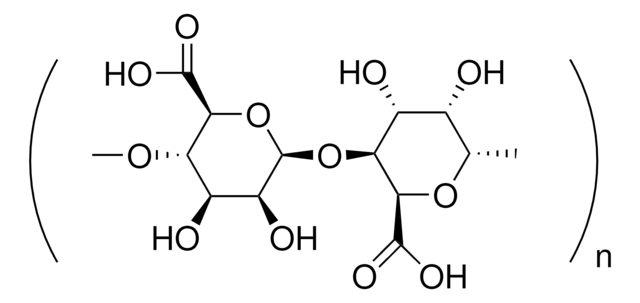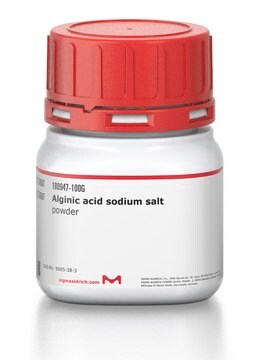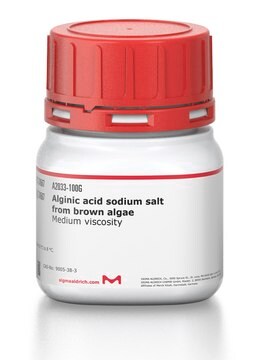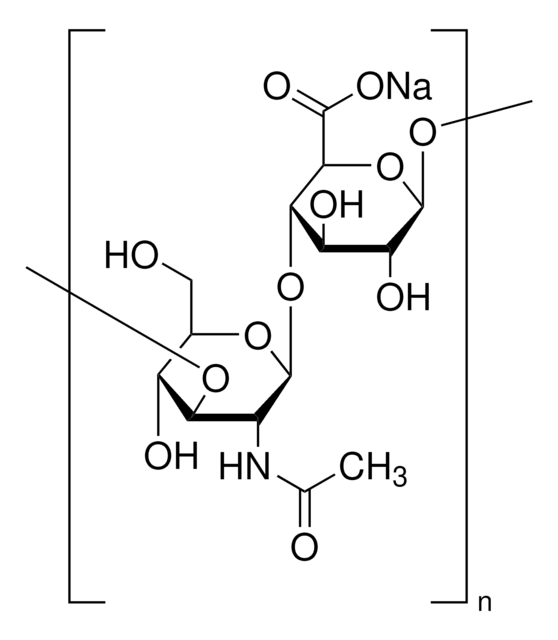933597
Poly(Guluronate)
low endotoxin
Synonym(s):
Alginate, Bioink, Bioprinting, Guluronic Acid, Hydrogel, Ionic, Sodium Alginate
Sign Into View Organizational & Contract Pricing
All Photos(1)
About This Item
Linear Formula:
(C6H8O6)n
UNSPSC Code:
12352201
NACRES:
NA.21
form:
(Solid chunks, fibres or powder)
Recommended Products
description
GPC 5-15 kDa
Quality Level
form
(Solid chunks, fibres or powder)
impurities
<125 EU/g Endotoxin
<5 CFU/g Bioburden(Total aerobic)
<5 CFU/g Bioburden(fungal)
color
white to off-white
storage temp.
2-8°C
Related Categories
General description
Sodium alginate is a natural linear polysaccharide derived from brown algae made up of blocks of B-D-mannuronate (M) and a-L-guluronate (G). Guluronate blocks that bind Ca2+ cations to form ionic bonds. Poly(guluronate) is isolated from alginate which can be used alone as a stabilizer or further modified to create additional functional groups.
Application
Sodium Alginate based hydrogels are widely used in tissue engineering, 3D bioprinting, and drug delivery applications.
Features and Benefits
- Sterile, low endotoxin
- Batch control offers reproducible models for preclinical toxicology testing and drug screening
- Extended shelf-life & stability
Storage Class Code
11 - Combustible Solids
WGK
WGK 3
Flash Point(F)
Not applicable
Flash Point(C)
Not applicable
Choose from one of the most recent versions:
Certificates of Analysis (COA)
Lot/Batch Number
Sorry, we don't have COAs for this product available online at this time.
If you need assistance, please contact Customer Support.
Already Own This Product?
Find documentation for the products that you have recently purchased in the Document Library.
Kuen Yong Lee et al.
Biomaterials, 25(13), 2461-2466 (2004-01-31)
Hydrogels, chemically cross-linked or physically entangled, have found a number of applications as novel delivery vehicles of drugs and cells. However, the narrow ranges of degradation rates and mechanical strength currently available from many hydrogels limits their applications. We have
Our team of scientists has experience in all areas of research including Life Science, Material Science, Chemical Synthesis, Chromatography, Analytical and many others.
Contact Technical Service







